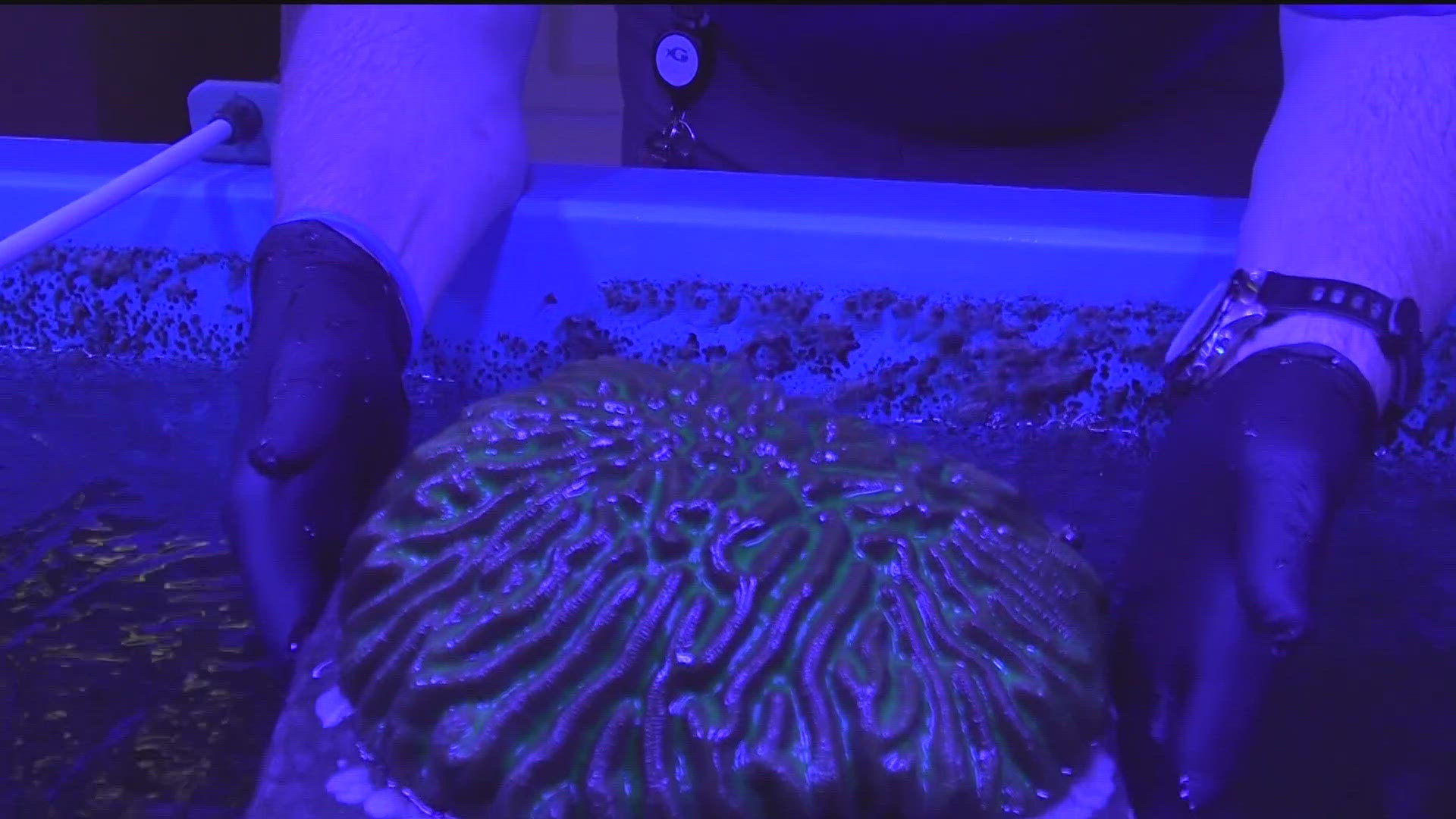ATLANTA — For more than a month, the Georgia Aquarium has been taking care of coral from The Florida Aquarium. The coral was moved in October for safekeeping as Hurricane Milton headed toward Tampa.
The coral that was packed up and moved for temporary keeping in Atlanta is part of an important effort to preserve and restore Florida's reef --- a state where many Georgians vacation.
The reef plays many roles, including safeguarding against extreme weather and coastal flooding.
Since arriving at the Georgia Aquarium, the coral has been kept behind the scenes in a room where Brian Nelson, who is with the aquarium, helps run.
"Welcome to the Aqua Culture room," Nelson said Tuesday while giving 11Alive a behind-the-scenes tour.
Inside the room, under blue-colored lights, sits a tank built specifically for coral. That is where Nelson has helped care for the corals from The Florida Aquarium.
"They're all part of the Florida Coral Rescue Project," Nelson said while holding one of the corals up to be examined.
The project focuses on protecting, reproducing and caring for coral that can be used to help restore Florida's damaged coral reef.
"The corals in Florida have been dealing with a particularly aggressive coral disease since 2014," Nelson said.
The disease is Stony Coral Tissue Loss, and it is threatening the reef along Florida's coastline. Both aquatic and human life, though, rely on the reef.
Director of The Florida Aquarium's Coral Conservation Program Keir O'Neil explained how it protects the coastline from wave energy and how they're fundamental building blocks that many other species need to survive.
"Our lobster fisheries, snapper, grouper they depend on coral reefs for part of their life cycle," O'Neil said. "In Florida, our tourism depends on coral reefs as well. People come here to snorkel, dive and enjoy our beaches. So it is really important to keep our reefs healthy."
As Hurricane Milton headed toward Florida and specifically Tampa in early October, O'Neil was closely watching weather updates.
"That forecast had our site getting 12 to 15 feet storm surge," she recalled.
O'Neil and her team made the call to pack up and move The Florida Aquarium's coral and transport it to safe places, which included the Georgia Aquarium.
For researchers and people working to restore the reef, it was an important decision, as the corals are invaluable.
"We hold a lot of coral individuals from Florida's coral reef that were rescued from disease outbreaks and are unique individuals that hold important genetics to help us restore Florida's coral population," O'Neil said.
Luckily, because of its existing work with coral, the Georgia Aquarium already was able to provide the specific conditions the coral needed to be cared for. Given its close proximity, the Georgia Aquarium was also only a drive away.
On the receiving end of the coral, Nelson was the perfect caretaker.
"I've spent most of my 25-year career working on coral in some way, shape or form, so for me, this is a little bit of an ability to give back to an environment I've represented in or worked in for the entirety of my professional career," Nelson said.
Now, it's time for the corals to return to Florida. On Tuesday, coolers were lined up next to the coral tank inside the Georgia Aquarium.
Before sunrise on Wednesday, staff will carefully pack up the coral so it can be transported back to The Florida Aquarium.

